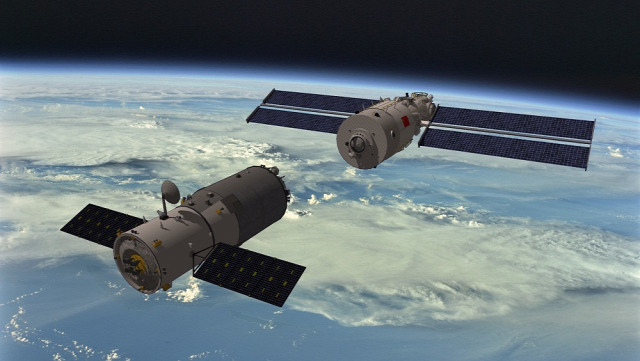
In the rapidly evolving aerospace industry, the demand for materials that are lightweight yet incredibly strong has never been higher. Advanced space composites, characterized by their superior strength-to-weight ratios, thermal stability, and durability, are becoming essential in the development of next-generation spacecraft and satellite technologies. The global advanced space composites market is projected to reach $4.61 billion by 2033 from $1.31 billion in 2022, growing at a CAGR of 12.11% during the forecast period 2023-2033.
What are Advanced Space Composites?
Advanced space composites are engineered materials composed of two or more constituent materials with distinct physical or chemical properties. These composites offer unique advantages over traditional materials such as metals and ceramics. Common types include carbon fiber-reinforced polymers (CFRP), glass fiber-reinforced polymers (GFRP), and ceramic matrix composites (CMC). These materials are pivotal in reducing the weight and increasing the performance of space vehicles and components.
Launch Vehicles to Dominate as the Leading Platform Segment
The platform segment within the advanced space composites market is dominated by the launch segment, which held a 40.25% share in 2023. The use of advanced composite materials in launch vehicles has led to significant improvements, including reduced weight, increased payload capacity, better structural integrity, enhanced fuel efficiency, and overall improved performance. Manufacturers of launch vehicles are now focusing on creating smaller, simpler, reusable, and more cost-effective designs, driven by the proliferation of small satellites.
However, due to the increase in satellite launches over the past few years and the anticipated surge in small satellite mega constellations over the next decade, the satellites segment is projected to experience the highest growth from 2023 to 2033. The satellites segment is expected to achieve the highest compound annual growth rate (CAGR) of 12.24% during this period.
Request A Free Detailed Sample on Advanced Space Composites Market!
Advanced Space Composites Market by Region:
Europe is experiencing the fastest growth among all regions, with a CAGR of 13.09%. European countries are recognized for their proficiency in space research and development, with several prominent space agencies, primarily the European Space Agency (ESA), significantly contributing to space exploration and technological advancements. These agencies partner with leading companies, research institutions, and universities to foster innovation and enhance the performance of advanced space composites. The European Space Agency (ESA) launched the SpaceCarbon project under the Horizon 2020 Programme, aiming to develop Europe-based carbon fibers (CF) and pre-impregnated materials for use in launchers and satellite applications.
Future Outlook
The future of the advanced space composites market looks promising, with several trends shaping its trajectory:
- Increased Adoption in Satellite Constellations: As the deployment of large satellite constellations for global internet coverage and Earth observation grows, the demand for lightweight and durable composite materials will rise.
- Advancements in Manufacturing Technologies: Innovations such as additive manufacturing and automated composite fabrication will enhance production efficiency and reduce costs.
- Sustainability Initiatives: The push for sustainable and recyclable materials in space applications will drive research and development in eco-friendly composite solutions.
- Expansion of Private Space Ventures: The rise of private companies in space exploration and tourism will spur further investment in advanced composite materials to improve performance and reduce costs.
Conclusion
Advanced space composites are revolutionizing the aerospace industry by offering unparalleled performance benefits that are crucial for modern space missions. With ongoing technological advancements and increasing investment from both government and private sectors, the market for advanced space composites is set to grow significantly. As we venture further into the final frontier, these materials will play a pivotal role in enabling the next generation of space exploration and technology.


